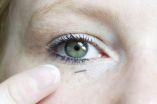(Press-News.org) New evidence shows that birds may choose their mate with the help of smell. They prefer a dissimilar mate because this gives their young a more efficient immune system. This has been shown in a new study by researchers from Lund University in Sweden, in a Swedish-French collaboration.
Humans and many animals can choose a suitable mate by smell. Choosing a mate with the right smell can give the offspring an efficient immune system. This is because each individual's smell can be said to reflect information on the individual's genes. By finding the mate whose genes best match one's own, the chances are higher that offspring will have greater resistance to a range of parasite attacks and other diseases.
Unlike many animals, birds have been considered to have a poor sense of smell, but there are exceptions. Blue petrels are Antarctic seabirds with an unusually good sense of smell. They can recognise their mate and their nest using smell alone, and return to their nests under cover of darkness. A group of scientists, including researchers from Lund University, have now shown that the nose of the blue petrel is even capable of smelling which mate will produce young with the best immune systems.
"The study is a collaboration between researchers here in Lund and researchers in France. My contribution has been my knowledge of how to identify and compare genes from different individuals", says Maria Strandh, a researcher at the Department of Biology at Lund University.
Blue petrels are long-lived and monogamous birds.
###
Link to the research article:
http://rspb.royalsocietypublishing.org/content/early/2012/08/31/rspb.2012.1562
For more information, please contact:
Maria Strandh, Department of Biology, Lund University, Sweden
Tel. +46 46 222 92 12, maria.strandh@biol.lu.se
The birdy smell of a compatible partner
2012-09-07
ELSE PRESS RELEASES FROM THIS DATE:
Measuring glucose without needle pricks
2012-09-07
Sticking yourself in the finger day after day: For many diabetics, this means of checking blood glucose is an everyday part of life. Especially for patients with Type-1 diabetes, who always have to keep a close eye on their levels, since their bodies are incapable of producing the insulin to break down the glucose in the blood. Several times a day, they have to place a tiny drop of blood on a test strip. It is the only way they can ascertain the blood glucose value, so they can inject the correct amount of insulin needed. And this pricking is not only a burdensome: it may ...
Unemployment causes more mental health problems among Somalis in London than in Minneapolis
2012-09-07
Somali immigrants to the UK and USA appear to integrate better and have fewer mental health problems if they are allowed to work and they receive practical support during the first few years of their time in the new country, according to a study led by researchers at Queen Mary, University of London (UK) and published in BioMed Central Public Health today (Friday). [1]
The study used a survey and focus groups to investigate the experiences of Somalis living in London (UK) and Minneapolis (USA). After adjusting for various factors such as age, sex and marital status, the ...
Archaeologists uncover 'lost garden' in quest for Richard III
2012-09-07
Archaeologists from the University of Leicester who are leading the search for the lost grave of King Richard III announced today that they have made a new advance in their quest.
They have uncovered evidence of the lost garden of Robert Herrick – where, historically, it is recorded there was a memorial to Richard III.
Now the 'time tomb team' as they have become to be known has discovered paving stones which they believe belong to the garden.
The University of Leicester is leading the archaeological search for the burial place of King Richard III with Leicester City ...
Premier global health journal, The Lancet, releases series on universal health coverage
2012-09-07
Washington D.C., September 7, 2012 – Every year 100 million people are pushed into poverty because they have to pay for health services directly. With support from the Rockefeller Foundation, Results for Development Institute has partnered with the world's premier global health journal, The Lancet, on a special collection of papers exploring the social, political, and economic issues around the global movement towards universal health coverage (UHC) – defined by the World Health Organization as everyone in a population having access to appropriate, promotive, preventive, ...
Antibiotic therapy improves moderate exacerbations of mild-to-moderate COPD
2012-09-07
Antibiotic treatment with amoxicillin/clavulanate improves moderate exacerbations in patients with mild-to-moderate chronic obstructive pulmonary disease (COPD) and significantly prolongs the time between exacerbations, according to a new study from researchers in Spain.
"The existing evidence for antibiotic therapy in non-severe exacerbations of COPD is weak," said lead author Carl Llor, MD, PhD of the University Rovira i Virgili in Tarragona, Spain. "The results of our multicenter, randomized, double-blind, placebo-controlled trial show that antibiotic treatment is ...
Towards computing with water droplets -- superhydrophobic droplet logic
2012-09-07
Researchers in Aalto University have developed a new concept for computing, using water droplets as bits of digital information. This was enabled by the discovery that upon collision with each other on a highly water-repellent surface, two water droplets rebound like billiard balls.
In the work, published in the journal Advanced Materials, the researchers experimentally determined the conditions for rebounding of water droplets moving on superhydrophobic surfaces. In the study, a copper surface coated with silver and chemically modified with a fluorinated compound was ...
Istanbul -- The earthquake risk of a megacity
2012-09-07
Today the drilling starts for a seismic monitoring network on the Marmara Sea near Istanbul. Specially designed seismic sensors in eight boreholes on the outskirts of Istanbul and around the eastern Marmara Sea will monitor the seismic activity of the region with high precision. In each of the respective 300 meter deep holes several borehole seismometers will be permanently installed at various depths. These detect even barely perceptible earthquakes with very small magnitudes at a high resolution and can thus provide information about the earthquake rupture processes associated ...
University of Toronto scientists cast doubt on renowned uncertainty principle
2012-09-07
TORONTO, ON – Werner Heisenberg's uncertainty principle, formulated by the theoretical physicist in 1927, is one of the cornerstones of quantum mechanics. In its most familiar form, it says that it is impossible to measure anything without disturbing it. For instance, any attempt to measure a particle's position must randomly change its speed.
The principle has bedeviled quantum physicists for nearly a century, until recently, when researchers at the University of Toronto demonstrated the ability to directly measure the disturbance and confirm that Heisenberg was too ...
Ancient, bottom-dwelling critter proves: Newer isn't always better
2012-09-07
BUFFALO, N.Y. -- Tiny sea creatures called rhabdopleurids reside on the ocean floor, building homes of collagen on the shells of dead clams. Rhabdopleurid colonies are small, and the critters are by no means the dominant animals in their ecosystem.
But they have lived this way -- and survived -- for more than 500 million years. And in doing so, they have outlasted more elaborate species that also descended from a common ancestor, according to a new study in the journal Lethaia.
Though rhabdopleurids' age and modern existence are well-documented, the paper breaks new ground ...
Strategy developed to improve delivery of medicines to the brain
2012-09-07
New research offers a possible strategy for treating central nervous system diseases, such as brain and spinal cord injury, brain cancer, epilepsy, and neurological complications of HIV. The experimental treatment method allows small therapeutic agents to safely cross the blood-brain barrier in laboratory rats by turning off P-glycoprotein, one of the main gatekeepers preventing medicinal drugs from reaching their intended targets in the brain.
The findings appeared online Sept. 4 in the Proceedings of the National Academy of Sciences, and is the result of a study from ...



